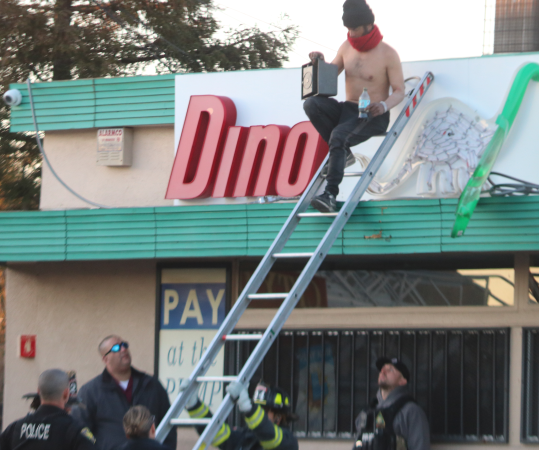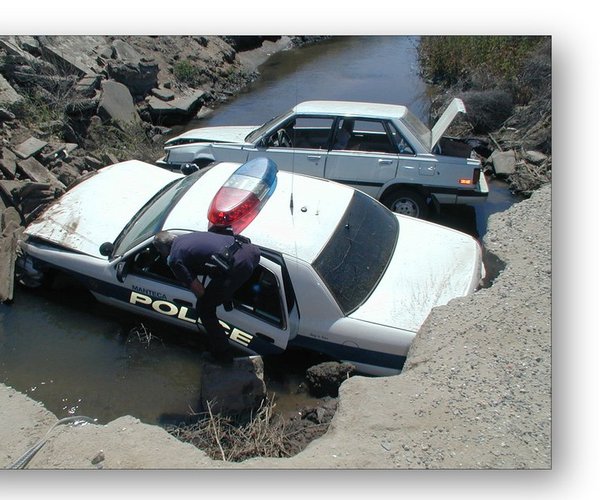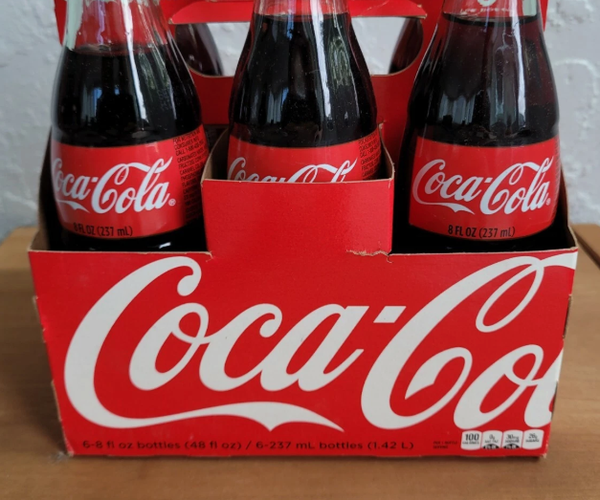It is the ultimate Manteca Rorschach test.
It will tell us who we are.
It will tell us what we are.
The inkblots in this case entail growth.
They entail our personal well-being and checkbooks.
They are about us — singular and collectively.
And despite what perceptions we and others harbor, when we look closely at those inkblots and reflect upon ourselves and what we see we may not like.
The test is the potential general plan referendum.
At its most elementary level, the case to convince people to sign petitions to force the election and to then pass the referendum will be portrayed as houses versus protecting farming.
If only it were that simple.
Or even that straightforward.
Chris Indelicato — the East Union High graduate who serves as CEO of Delicato Wines that is the fifth largest in the world — spends much of his time in the Napa Valley.
That doesn’t make him less of a Mantecan.
What it does is underscore that he really hasn’t been losing sleep about Manteca adding more and more houses for decades.
If he was, he certainly wasn’t compelled to lead the charge against it long before now.
Then again, it wasn’t his ox being gored.
The Indelicato family corporation has roots that go back 99 years. They have made a substantial investment in expanding their winery during the past few years. And they have emerged as one of the savviest wine marketers on the face of the earth.
Indelicato — just like homeowners backing up to farmland — clearly sees almond orchards being converted into tract homes as a threat to his world more so than Manteca in general.
Talk all you want about how real the threat of urbanization near farming is or point to Gallo in Modesto that virtually has its winery in people’s backyards.
That isn’t the question.
It’s really how much Manteca embraces agriculture.
Manteca has spent the last 50 years trying to run away from farming.
Yes, Manteca is a right-to-farm city but the love just isn’t there.
Maybe the love affair went south when Spreckels Sugar and 200 good paying jobs were chased out of California in 1996 by air quality rules that were jacking up the price of sugar processing.
Yes, we celebrate pumpkins in the fall and watermelons in the early summer — two crops that are not grown in larger number elsewhere in California.
But guess what: When it comes to wine grapes, San Joaquin County is king of the hill. Not Napa Valley. Not Monterey.
As ironic as it sounds, the general plan that Delicato Wines is railing against, includes policy statements that the city should work to develop a Stanislaus River appellation brand to boost the local economy and to tie itself closer to agriculture that surrounds the city especially through wine tasting rooms showcasing local products.
The people whose signatures’ Delicato must collect to force a referendum don’t give a kangaroo rat’s ass about farming.
Many complain about the harvest dust. They’re irked about the flies. They don’t like the periodic smells. And, if they are bordering an actual field, they don’t like the fact farmers often have to work throughout the night.
And many certainly have no clue that the world’s fifth largest winery is in Manteca’s own backyard or that no county in the United States grows more wine grapes than San Joaquin.
What many of them do care about is shutting the door behind them after unloading moving vans after buying a home that — regardless of when it was built — displaced farmland in order to exist.
They are eager to protect agriculture because they’d rather have an almond orchard in perpetuity just a block from their homes instead of more tract homes.
That’s especially so if the new homes aren’t as big as their home or on as large of lots.
And they are the ones that wouldn’t hesitate to call a farmer a sellout who would sell 40 acres of almonds so Kiper Homes can build 170 homes on North Airport Way.
Forget the fact that land is part of the career that farmer built for their selves and their family.
The land is more often than not their retirements given they don’t pocket $200,000 paychecks with stock options but instead are at the mercy of one to two annual paydays or — if they are a dairy farmer — spending 10 times more hustle and take 10 times more risk to make the same dollar that a techie does.
Other farmers who sell due to the growing issues of farming when urban growth runs up against their fence, take the money and buy land away from growth’s path so they can keep farming.
As for “working” with Delicato, you could argue there wasn’t much more the city could do in its land use element.
The bottom line is Delicato wants farmland it doesn’t own to serve as a perpetual buffer to protect their winery.
Of course, if the city had been embracing farming from the get go 50 years ago instead of running away from it as growth took off in the Northern San Joaquin Valley, this debate wouldn’t be taking place.
The’s because the general plan that existed prior to 8:15 p.m. Tuesday is an extension of a previous plan that followed California’s planning rules to identify the area north of Lathrop Road as being urbanized one day.
As such — especially with the region’s growth — it has pretty much sealed the long-term fate of landowners north of Lathrop Road that are not developers or large enough agricultural operations to weather the storm like Delicato is positioned to do so.
There is also one little detail to keep in mind.
If you believe the referendum is going to slowdown or stop growth in Manteca, you are flat-out wrong.
There are close to 10,000 housing units in the entitlement pipeline that won’t be stopped by the referendum.
As for areas now designated as reserves for housing in the general plan that is actually less than in the previous general plan, rest assured sue-happy Sacramento will take a dim view of the city if it tries to stop the land from being converted into houses.
That’s because the California legislature — short of not having any water or infrastructure systems that can be expanded to accommodate more homes — has made it impossible for cities to stop housing growth.
Regardless of how the referendum goes, Manteca is still heading toward a population of 211,003 residents.
What this is about – in a nutshell — is a dispute between neighbors.
Delicato, for all practical purposes, wants the city to restrict the use of other people’s land adjacent to the winery as an agricultural greenbelt to protect it from having homes or even business parks within a set amount of distance.
Those neighbors have made it clear they don’t want that.
In fact, when neighbors approached Delicato about buying their land it went nowhere.
The cost of a campaign to convince people they are going to stop housing growth when a referendum will do nothing of the sort is a much cheaper way to get the greenbelt that Delicato believes it needs.
They want the greenbelt because they believe they can’t trust the city to do the right thing when it comes to potential future complaints against the winery from residents of future homes.
And given how closely Manteca hasn’t aligned itself with agriculture in recent decades beyond the bare legal minimum and taken steps like the City of Davis has, who can blame Delicato Vineyards for not trusting the city’s commitment to farming?
This column is the opinion of editor, Dennis Wyatt, and does not necessarily represent the opinions of The Bulletin or 209 Multimedia. He can be reached at dwyatt@mantecabulletin.com






